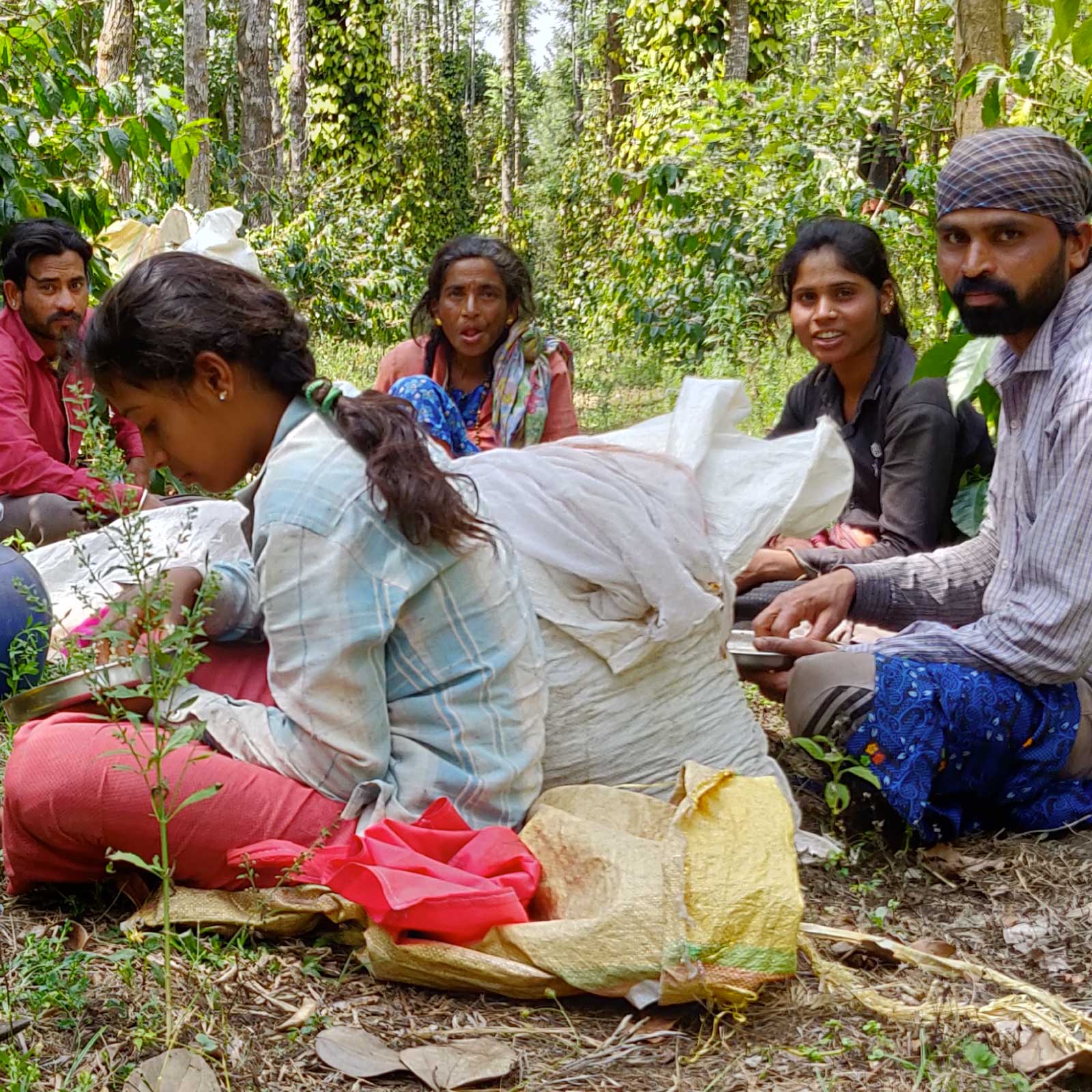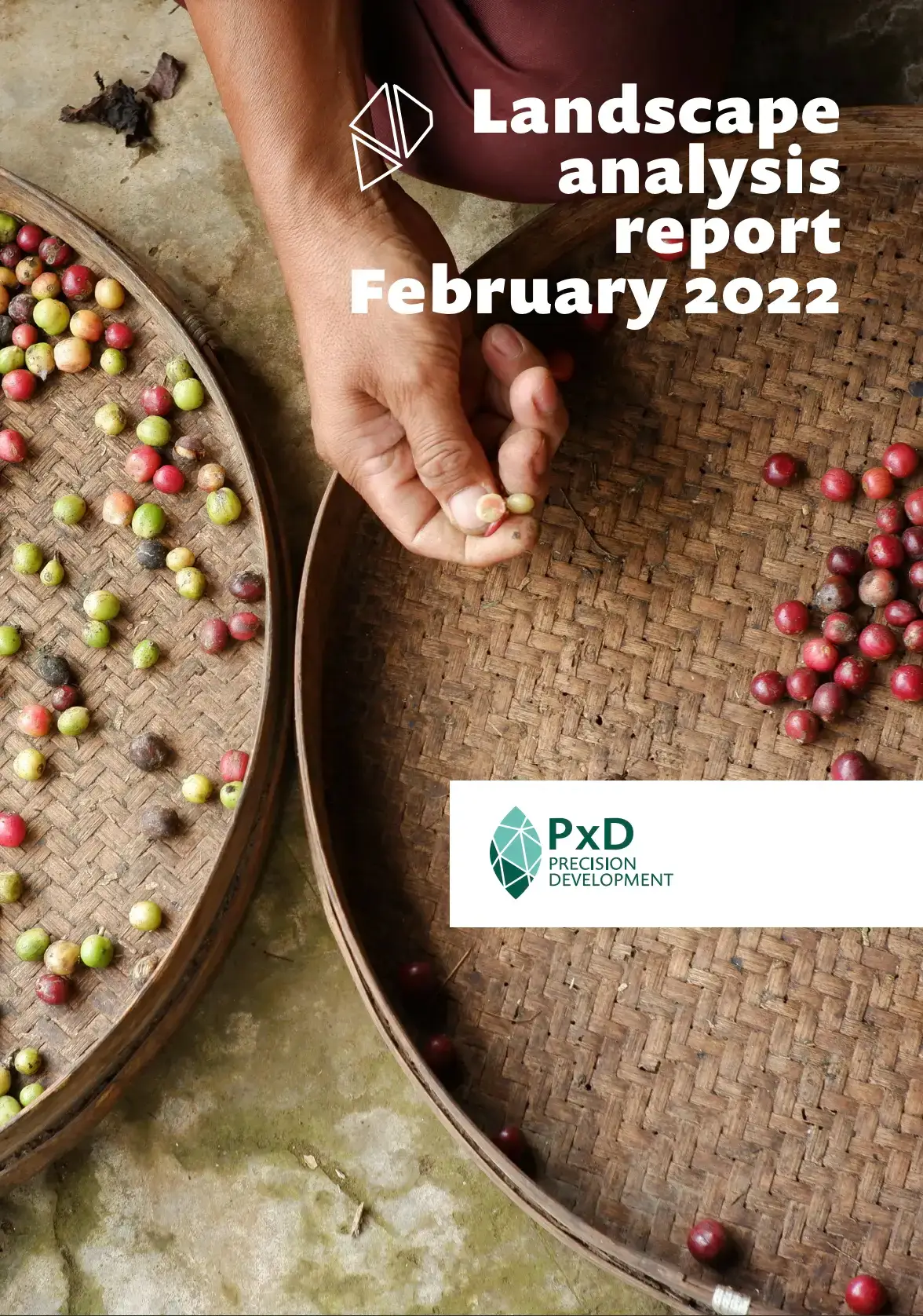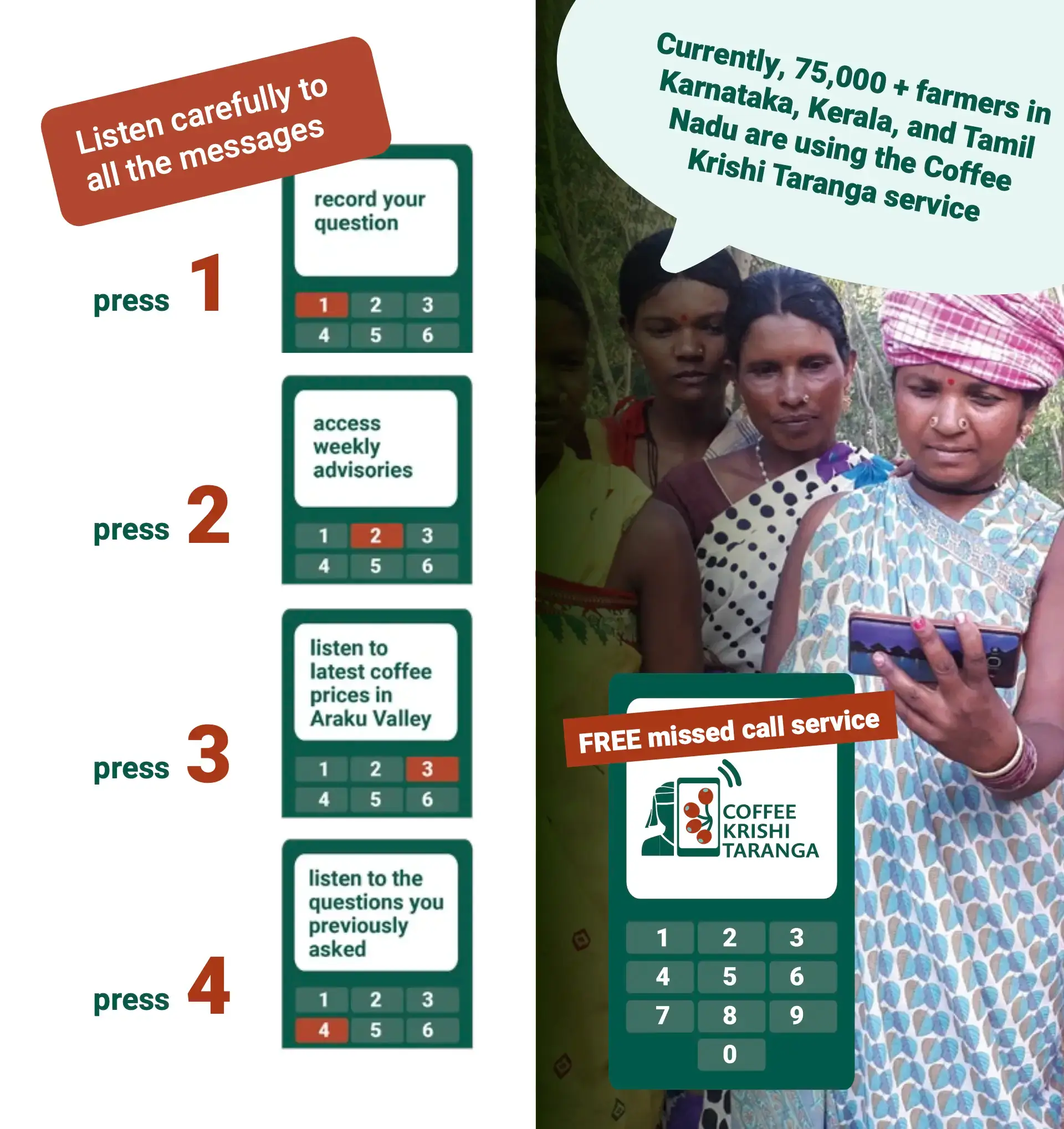Coffee Krishi Taranga – Digital Advisory for Indian Smallholder Coffee Farmers
Since 2018, Precision Development (PxD) has partnered with the Coffee Board of India (CBI), a statutory body, to deliver the Coffee Krishi Taranga (CKT) digital advisory service to coffee growers.
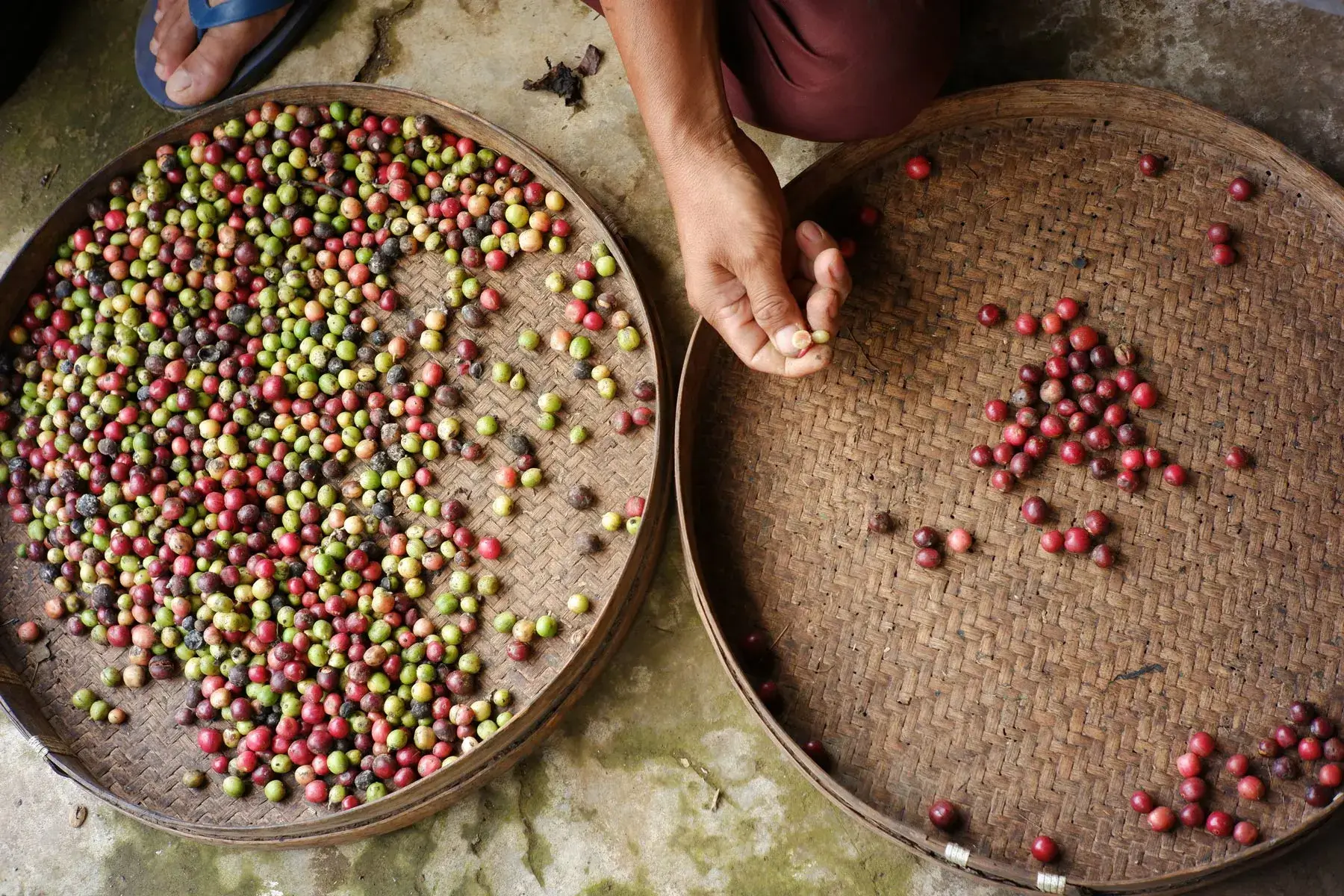
August 2018
Coffee Board of India
153,000
Walmart Foundation, Vitol Foundation, Rainforest Alliance, Netherlands Embassy in India, IDH Transforming Markets
Karnataka, Kerala, Tamil Nadu, and Andhra Pradesh
Overview
The Coffee Krishi Taranga (CKT) service was launched in 2018 by the Coffee Board of India (CB) with the support of Precision Development (PxD) to provide customized digital advisory and extension services that are cost-effective and scalable. This service provides voice advisories to coffee farmers in Karnataka, Kerala, Andhra Pradesh, and Tamil Nadu through a two-way Interactive Voice Response (IVR) system. The CKT service has over ~150K registered farmers. PxD built the service and since 2023, transitioned day-to-day implementation to the CB. The CB now pays for all service implementation costs, while PxD services as the learning and innovation partner. In the last year, PxD and CB have been iteratively testing two key improvements to the service: first, the use of improved content such as localized weather forecasts or regenerative agriculture and second, the use of Generative Artificial Intelligence (Gen AI) to generate hyper-personalized advisories for farmers. Based on farmer feedback and learning, these service improvements will then be scaled and institutionalized.
Motivation
Nine in ten coffee farmers in India are smallholders who work on farms of ten hectares or less. Coffee yields in India are only two-thirds of the average for other coffee farming countries in Asia (FAO Stat), and farm incomes have stagnated in recent years (Coffee Board, 2013). These conditions have contributed to a context in which Indian coffee growers are rapidly losing market share to countries like Brazil and Vietnam. Smallholder coffee farmers in Southern India confront complex and interconnected challenges with potentially devastating impacts on their livelihoods:
- Climate change: climate change is a serious threat to coffee production globally. Researchers predict a huge contraction of land suitable for coffee growing due to rising temperatures and changing weather patterns (Bunn et al, 2014). Currently, coffee farmers face the threats of extreme weather, unpredictable rainfall, and rising temperatures, all of which have direct and indirect impacts on the quality and quantity of coffee produced. Moreover, climate change is contributing to the intensification of pest infestations and making pest management more costly and complicated.
- Markets: Indian smallholder coffee farmers sell their produce in markets that are highly fragmented and exploitative. As a consequence, few of the profits associated with coffee production trickle down to these farmers.
The precariousness of smallholder coffee farmers’ livelihoods is compounded by informational constraints that inhibit the ability of farmers to make informed decisions as they navigate challenges. Improved access to information can boost the sustainability of coffee farming, contribute to climate change adaptation, improve farm productivity and help farmers access more lucrative markets and obtain more bargaining power in existing markets.
How the Service Works
The CKT service is modeled on PxD’s flagship two-way Interactive Voice Response (IVR) service and consists of an outgoing push call service that provides regular advisory to growers via their mobile phones and an inbound hotline that farmers can call to access free information services. Farmers registered on the service receive a two-minute voice call in their local language with targeted agricultural advice to optimize coffee-growing practices throughout the coffee crop cycle. This information is customized across a variety of parameters including the location of the farmer, and the variety of coffee grown.
Farmers can also access CKT’s IVR hotline by placing a missed call to the hotline number to which the service then responds by returning a call free of charge (in this way, farmers do not need to incur charges for airtime). Upon answering the call, farmers can record a question which is then answered by coffee agronomic experts within 24 hours, or they can use a menu to access local and international coffee price information, review weekly advisory messages, and access their own inboxes which collate their history of questions asked through the service. A unique feature in the CKT hotline is the price feature – which allows farmers to access daily average local and international prices for Arabica and Robusta. This feature was added because of the high demand for price information from farmers, and the need to accurately reflect regional variability in local coffee prices at the district level.
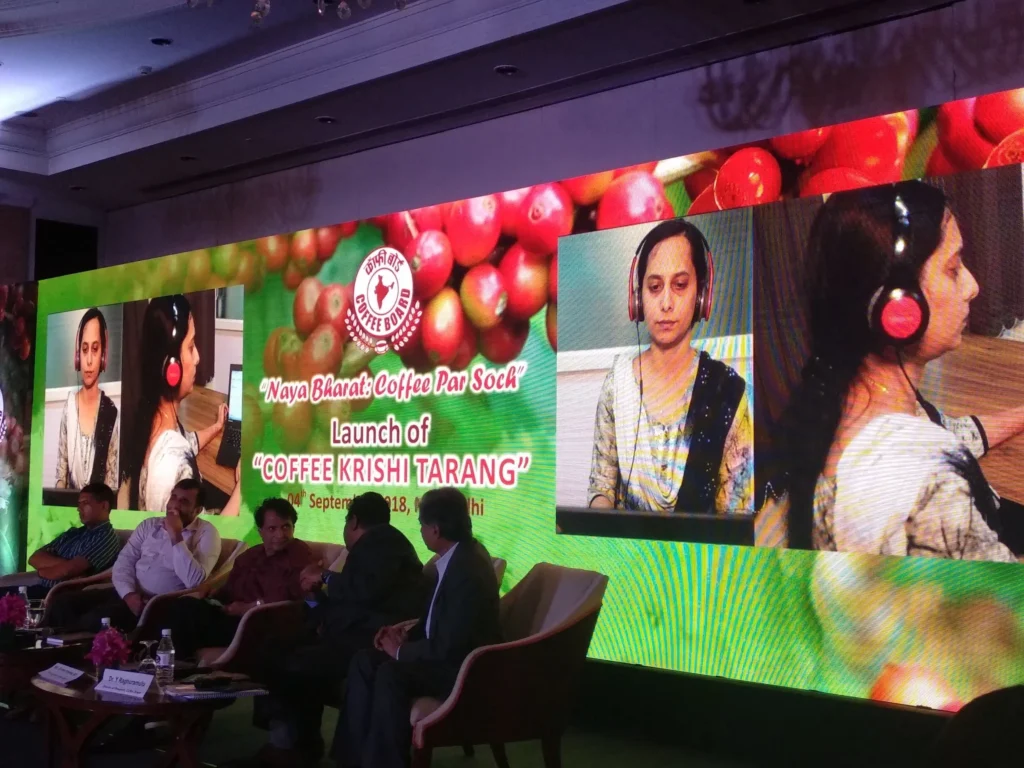
The PxD team works with the Coffee Board’s research team to design and deliver advisory throughout the year. Advisory covers all stages of the coffee-growing cycle, including land preparation, planting, fertilizer application, pest and disease management, weeding, and harvesting, as well as post-harvest management. Additionally, this advisory is updated on a dynamic basis, premised on real-time conditions, including weather, pest outbreaks, etc.
A Model for Coffee Production
There are many examples of simple technologies and practices that, if adopted, can increase yields and productivity, yet adoption remains low. For example, in India, coffee pests like White Stem Borer (WSB) contribute to mean annual yield losses of up to 35 percent. The impacts of WSB can be mitigated by proactive identification and treatment (Manikandan et al., 2019). With only one extension worker for every 1000 coffee growers, farmers lack access to timely and relevant information.
CKT aims to provide coffee farmers with timely and accessible digital advice, customized to their needs. Effective service provision will build market linkages for farmer collectives, improve their knowledge, promote behavior change, facilitate access to new markets, and improve yields, net incomes, and environmental outcomes. We hope that this bundled product becomes a model for the coffee industry, and other commodity cash crops, particularly where there are opportunities that promote more sustainable practices (such as intercropping with spices) that increase income opportunities, and open the value chain for greater involvement on the part of women and indigenous communities.
Examples of calls to farmers
Advisory to promote knowledge about the management of fruit drop and black rot, diseases that negatively impact coffee production.
Translation: Dear farmers, due to the prevailing sunshine and overcast rains, many productive coffee plants – arabica and particularly robusta – are prone to small fecal matter and may be infected with rot. This is due to poor air circulation among the roots, hormonal changes in plants, a lack of nitrogen, and fungus dissolving in coffee beans. This can contribute to 10-20% crop losses. As a consequence, maintenance and disease management is very important. For this, drains must be made to keep the water flowing. Plants should be weeded to make way for roots to breathe. One bag per acre should be placed between the urea lines to alleviate the nitrogen deficiency. Mix 50 ml of Planofix and 200 g of Bavistine in 200 liters of water and spray plants or stripes only where necessary. Thank You.
Advisory promoting steps farmers can take to mitigate leaf rust in the aftermath of an uneven monsoon.
Dear farmers. During the current season, most coffee growing areas have been impacted by the delayed onset of the South-West monsoon followed by lashing rains and strong gusts of wind. During the first and second fortnights of August, the weather alternated between wet and dry conditions. In a normal season, the initiation of leaf rust disease and its build-up takes place during the month of September. The current climatic conditions are currently favorable for leaf rust, particularly in susceptible varieties. Hence, it is suggested that farmers adopt the following management practices to prevent the flare-ups of the disease. For susceptible cultivars such as S.795 and Cauvery, we recommend that you spray the systemic fungicide hexaconazole @ 400 ml/200 liters of water along with any wetting agent. For tolerant cultivars such as Sln.5B, Sln.6, Sln.9, and Chandragiri, spray a Bordeaux mixture. In cases where there is an existing disease, and if you see sporulating pustules, then systemic fungicide is a better option. Thank You.
From our blog

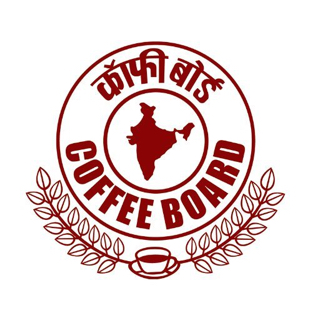
Make an Impact Today



